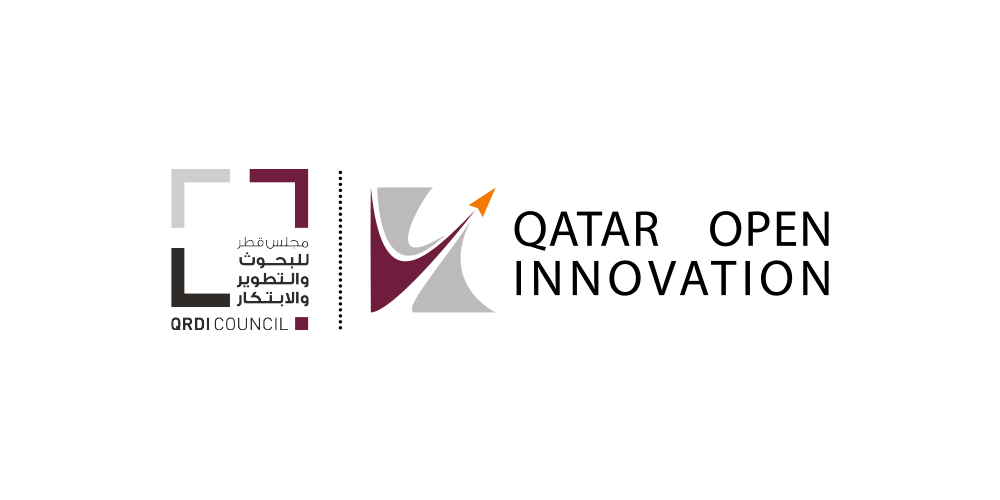| Challenge Owner(s) |
Ministry of Environment and Climate Change (MoECC), Ministry of Municipality (MoM), Qatar Research, Development and Innovation (QRDI)
|
|---|---|
| Organiser(s) | Qatar Research, Development and Innovation (QRDI) |
| Industry Type(s) |
Agri-tech, Air Transport, Electronics, Logistics, Sea Transport
|
| Opportunities and Support | Proof of concept leading to scale-up, joint development, supplier agreement, licensing |
| Application Start Date | 7 October 2022 |
| Application End Date | 21 December 2022 |
| Website | Click here to learn more |
About Challenge
Developed and launched by QRDI Council, the Qatar Open Innovation (QOI) program connects strategic entities within Qatar (Opportunity Owners), such as government agencies and large local enterprises with a global pool of innovators and technical experts. QRDI Council works with Local Opportunity Owners to identify and frame these opportunities, issue innovation calls, evaluate submitted proposals, and award winners to pilot innovative solutions.
Qatar Open Innovation offers a unique opportunity to develop breakthrough technologies and solutions for priority sectors in Qatar.
Learn More| Challenge Owner(s) | Ministry of Environment and Climate Change (MoECC), Qatar Research, Development and Innovation (QRDI) |
|---|---|
| Industry Types(s) | Air Transport, Logistics, Sea Transport |
Rapid Detection of Harmful Chemical Mixtures at Package Entry Points
The MoECC is the key authority for maintaining the safety and integrity of Qatar customs and ports. Every year, the MoECC is able to monitor, sample and detect hazardous or non-labelled cargo / packages from entering Qatar illegally. This monitoring must
also be carried out in a fast and efficient manner to prevent holdups and subsequent fines for importers / exporters at Qatar entry points.
The detection of hazardous chemicals, not declared by importing parties, is provided using IR /
Raman spectrometer techniques which enables rapid detection of simple compounds / mixtures after referencing an internal database. However, current commercial devices provided by large corporates are less accurate at detecting hazardous chemicals
in complex mixtures.
Additionally, some containers (sealed drums) are also difficult to assess without opening, sampling and analysis by off-site laboratories. Sampling of drums / containers on port side is both complex, time consuming
and expensive due to delays related to lab based analysis.
What We Are Looking For
- Oil Transportation – Waste / recycled oil cannot be export / transported due to international conventions. Used oil contains multiple contaminants such as metals, organic and inorganic compounds which are harmful to the environment.
- Industrial Chemicals – Identification of pesticides, fire retardant paints, chemicals banned for weapon conventions in sealed containers.
The proposed devices will not require highly trained personnel to utilize and will be robust in the Qatar climatic environment where temperatures are regularly higher than 45⁰C.
*Deadline: 14th December 2022*
| Challenge Owner(s) | Qatar Research, Development and Innovation (QRDI), Ministry of Municipality (MoM) |
|---|---|
| Industry Types(s) | Agri-tech, Electronics |
Early Detection of Red Palm Weevil
Rynchophorus Ferrugineus, also known as “Red Palm Weevil”, is considered the most destructive insect for palm trees across the world. The male Red palm weevils are attracted by the palm trees scent and / or the female pheromones residing on the tree. The mature weevil can lay twice a year and upto 600 eggs per tree which then mature into larvae and cause destruction of the tree by infestation of the tree from the inside.
Currently, no viable early detection and prevention solutions have been developed and rolled out to the public, entities rely on visual inspections by individuals for detection. This detection method is not financially or physically feasible and cannot be deployed on large farms. As a result, when it comes to prevention and spread control of red palm weevil infection, biological and chemical treatments are applied on all palm trees. This method requires significant financial and human resources and is not considered environmentally friendly.
What We Are Looking For
*Deadline: 21st December 2022*
Sign up for the latest innovation updates
Customise your preferences to receive updates in industries you're interested in.
